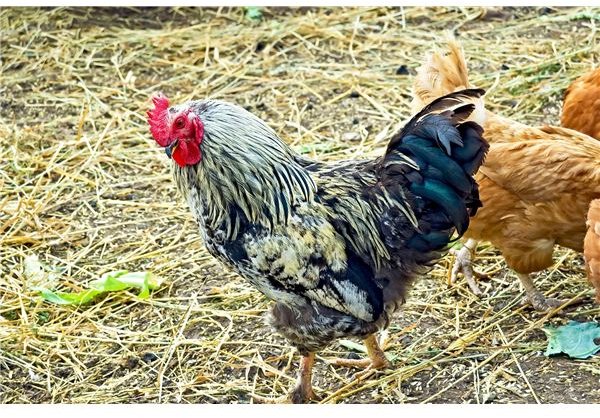The Realities of Backyard Chickens: Educate Yourself on Your Chicken's Needs
Good Intentions
After much publication of the inhumane conditions of poultry farms, more and more ordinary people took the plunge to begin raising their own chickens themself, whether for meat or eggs. These would-be farmers may have had good intentions, but some had to give up their birds after trying it out for a few months. Animals shelters report an increase in abandoned chickens when the months grow colder.
Raising chickens for meat or eggs can be an excellent hobby, but it is not something to be undertaken without adequate preparation. The problems come when backyard farmers do not educate themselves on all the realities of caring for their flock.
Common Mistakes
Before starting a backyard egg operation, people need to learn at least the basics on caring for poultry. Some common mistakes and unknown facts farmers learn too late include:
-
They mistakenly buy a rooster. Many urban farmers take home a chick for laying eggs to discover they have purchased a rooster. Roosters, they find, cannot legally live in city limits because in adulthood they become too loud for even the most tolerant neighbors.
-
Hens lay eggs for five years, but can live for ten years on average. Purchasing an adult bird means you may have a bird who is no longer able to lay at full production, or not at all. When buying a full-grown hen, farmers find they have passed their egg-laying years or they over-produced before and cannot produce any longer.
-
Hens normally do not lay eggs every day. Their egg production typically slows down in the darker and colder winter months. Encouraging overproduction through the use of artificial lighting or other means may compromise the health of your birds.
-
Hens attract rats and predators to the neighborhood.
-
Chickens need sufficient shelter in the winter.
-
Most backyard chicken farmers do not save that much money. The cost of chicken feed and veterinary care may outweight the money saved through producing your own eggs.
In order to ensure you purchase healthy hens (rather than roosters), buy chicks from knowledgeable poultry farmers. In general, stay away from adult hens sold from newspaper or computer list sites. If you wish to raise chickens simply to give them a good home, consider adopting adult birds from a shelter. They may be in peak-laying condition, but they can still prove a valuable addition to a household.
Before Building the Coop
Make sure your birds do not end up in a shelter by educating yourself on the realitives first. Before starting a backyard egg business:
- Check the city ordinances for permit and legal information
- Learn to care for hens to avoid illnesses
- Learn to sex chicks
- Make sure the area you use supports a chicken coop and shelter
- Budget for chicken feed and emergency veterinarian costs
Raise healthy hens that produce eggs for the expected amount of years and treat them kindly once they can no longer lay eggs. Chickens are a long-term commitment the same as purchasing a dog or cat.
References
- Hipsters Off the Hook: The Truth Behind Abandoned Backyard Chickens, http://www.npr.org/blogs/thesalt/2013/07/10/200699728/hipsters-off-the-hook-the-truth-behind-abandoned-backyard-chickens
- Backyard chickens dumped at shelters when hipsters can’t cope, critics say, http://www.nbcnews.com/health/backyard-chickens-dumped-shelters-when-hipsters-cant-cope-critics-say-6C10533508
- Small Free Range Egg Producers Can’t Escape Problems of Factory Farms, http://www.forbes.com/sites/jamesmcwilliams/2013/10/23/small-free-range-egg-producers-cant-escape-problems-of-factory-farms/
- History of Mike the Headless Chicken, http://www.miketheheadlesschicken.org/history
